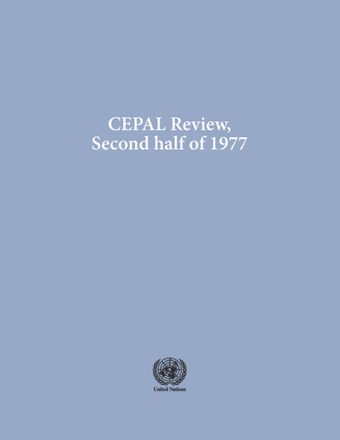-
The deficit in urban services: A structural limitation?
- Source: CEPAL Review, Volume 1977, Issue 4, Dec 1977, p. 175 - 186
- Spanish
-
- 12 Dec 1977
Abstract
The authors analyse the causes of the deficit in urban services in Brazil and maintain that they have their roots in the complex combination of an inappropriate and insufficient supply and a demand seriously affected by the economic crisis. On the one hand, they underline the fact that the structure of supply is based on technological and economic patterns unsuited to the population’s needs and possibilities. Not only are technologies adopted which are proper to the developed countries, and which in the real conditions prevailing in Brazil prove too complex, inflexible and exclusive, but the generation of supply is guided by the criterion —appropriate to private enterprise— which assesses the value of investment by its profitability. On the other hand, they point out that the critical economic situation through which Brazil is passing has had a disturbing effect on the capacity for payment of the low-income groups, so that their needs in respect of services cannot be translated into real demand. To this profound inconsistency between supply, real demand and basic needs are added the financial problems of the municipal authorities and the difficulties they encounter in undertaking programmed action.





